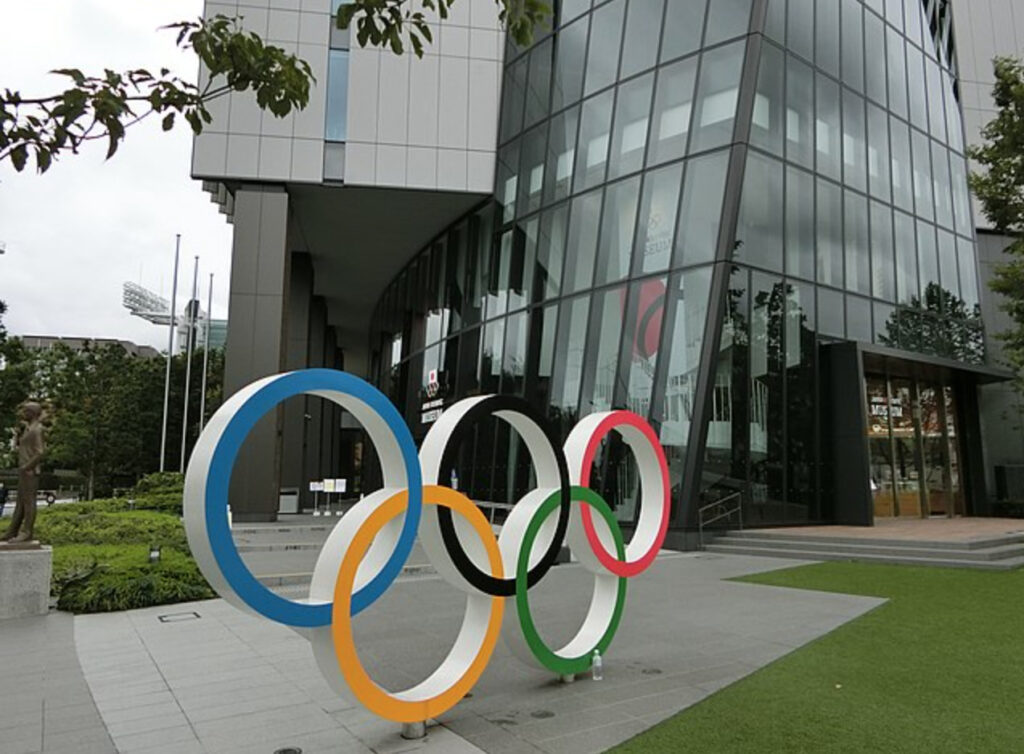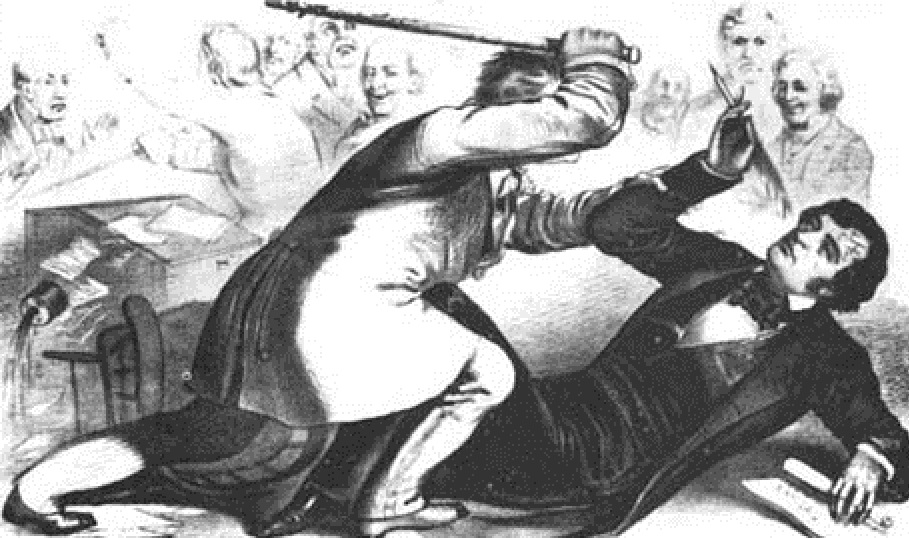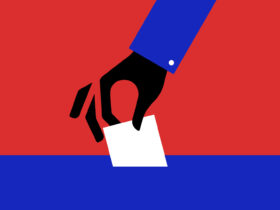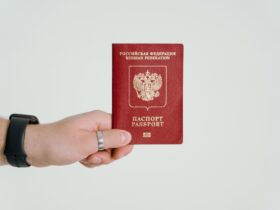By Kennedy Zak and Aidan Martin
LOS ANGELES — In April 2020, the International Olympics Committee decided to uphold Rule 50, which states that “no kind of demonstration or political, religious or racial propaganda is permitted in any Olympic sites, venues or other areas.”
This decision came after an eleven-month consideration period in which the IOC consulted over 3,500 athletes, including 185 National Olympic Committees and athletes from all 41 Olympic sports. According to the IOC’s surveys, 70% of athletes said they did not want protests to be carried out in the Olympic Games. The countries with the highest approval rating for allowing protests were Canada (51%), South Korea (51%) and the United States (47%).
“The podium and field of play and ceremonies were very specific and hold very specific memories in my heart,” Kirsty Coventry, chair of the IOC Athletes’ Commission and former Zimbabwe Olympic Swimmer, told The Washington Post. “So if I think about when I was competing, I wouldn’t want something to distract and take away from that. That’s how I still feel today.”
Based on the information gathered, the IOC developed a policy for the Olympic Games in Tokyo. Actions that are prohibited include “displaying any political messaging, including signs or armbands; gestures of a political nature, like a hand gesture or kneeling; and refusal to follow the Ceremonies protocol.”
The question of Rule 50’s legitimacy, considering the particular social context of the 2021 Olympic Games as athletes around the globe push for greater racial, socioeconomic and gender equality, among other causes, is one that forces a conversation on free speech considerations, the role of sports in politics and social justice.
Kennedy Zak: Abolish Rule 50, It Violates International Law
Rule 50 blatantly violates international law, undermines the severity of discrimination throughout the world and ignores the newfound status quo of letting athletes and observers express their concerns regarding injustice during the games.
Rule 50’s overt disregard for international norms is evident when examining Article 19 of the International Covenant on Civil and Political Rights, a treaty adopted by the United Nations. Article 19 makes clear the right to freedom of expression across all frontiers. Restrictions on this article are permitted but only if they “are provided by law and are necessary.” While the IOC is privately owned, they should still adhere to widely accepted and practiced international policies in order to best represent the wishes of the general public.
In the European Convention for the Protection of Human Rights and Fundamental Freedoms, the same freedom is expressed in Article 10. This convention more clearly outlines instances in which restrictions of this freedom may apply: “in the interests of national security, territorial integrity or public safety, for the prevention of disorder or crime, for the protection of health or morals, for the protection of the reputation or rights of others, for preventing the disclosure of information received in confidence, or for maintaining the authority and impartiality of the judiciary.”
The IOC’s policy against allowing any form of protest or expression of political ideologies does not merit an exception to these highly regarded international policies. While suppressing the public’s ability to engage in boisterous, disruptive, or even violent acts of protest is understandable, the IOC has gone too far in banning simple gestures, such as kneeling and other harmless acts of peaceful expression.
Aside from a clear violation of personal freedoms, the IOC is also treating grave instances of discrimination as though they are a burden to and distraction from the games. Chalking acts of protest down to “grievances” and “divisive disruption” patronizes those affected by systemic injustice and sends the message that their struggles are not important.
The Olympics provide a unique opportunity for the world to come together on a highly televised international platform, offering a vast forum for social issues to be discussed and publicized. This occasion should not be dismissed to appease those who wish to stay silent on these issues.
The Olympic Games are no stranger to protest.
In 1968, two Black American athletes held their fists in the air to symbolize Black power and to show support for the human rights movement. “We had to be seen because we couldn’t be heard,” one of the athletes said in an interview about the protest. An Australian athlete that stood by them was, essentially, boycotted by the Australian Olympic team for the rest of his career. While there were consequences for the American athletes too, they were eventually allowed to rejoin the team.
By staying stagnant on anti-protest policies, the IOC is hindering progress in human rights and self expression, and falsely assumes that sports and the Olympics are apolitical.
USA Today Columnist Nancy Armour notes that IOC officials have frequently weighed in on political matters in the past. For example, IOC President Thomas Bach previously commented on having a unified Olympic team for North Korea and South Korea, saying that “sport can once more make a contribution to peace.”
“The International Olympic Committee gets a gold medal in hypocrisy,” Armour wrote. “The truth is, it’s not the mixing of politics and sports that Bach and the IOC don’t like. It’s the mixing of politics they don’t like with sports.”
Furthermore, many other sports organizations have condemned their previous bans on acts of peaceful protests, such as kneeling during the national anthem. For example, in the United States, the National Football League formerly did not allow kneeling, only allowing those who wanted to kneel to simply stay in the locker room during the anthem. Following the swarm of protests and political outrage in the wake of George Floyd’s death, NFL Commissioner Roger Goodell issued a statement of regret for this rule and encouraged all players “to speak out and peacefully protest.”
Likewise, FIFA, Major League Soccer and the National Collegiate Athletic Association all have either directly spoken in support of protests or made no restrictions for athletes to express their beliefs. Clearly, the IOC is falling behind on an issue that is largely supported throughout other athletic organizations.
While many athletes do not want protests at the 2021 Olympic Games, as long as the protests are peaceful and non-disruptive, people should still have the right to express their political beliefs in whatever realm they deem necessary. On July 2, the IOC responded to this criticism by amending Rule 50 to allow peaceful protests on the field of play before events begin, while still upholding the podium ban.
Over the course of the Tokyo Olympics, athletes and observers have stayed relatively in line with the IOC’s Rule 50, with a few small exceptions. For example, a gymnast from Costa Rica ended her routine by kneeling and raising a fist to show her support for equal rights. Similarly, a group of American fencers wore pink masks in protest of Alen Hadzic, a teammate who had been accused of sexual misconduct by several women.
These acts have not caused enough of a stir to warrant penalties or disqualification, but athletes should not have to live in fear of repercussions for expressing their beliefs. If “the goal of the Olympic Movement is to contribute to building a peaceful and better world,” according to the IOC, how can peace prevail without giving people the unrestricted right to protest the issues that directly impede peaceful coexistence?
The simple answer is that it can’t.
Aidan Martin: Majority Rules: Rule 50 Respects Athletes and Subcommittees
While American sports leagues, such as the NBA and the NFL, have increasingly allowed athletes to speak out on political issues and engage in peaceful protest, this change cannot be extended to the Tokyo Olympics. The extensive eleven-month survey from the International Olympics Committee shows that athletes around the globe simply do not have the same opinions on the presence of protest in sports as their American counterparts.
While I would agree that the IOC has liberally and detrimentally extended its interpretation of the infamous Rule 50 in recent years, if it is truly committed to listening to all of its athletes and making the 2021 Games about them, it should uphold Rule 50 and continue the ban on political protesting in Tokyo this summer.
The importance of free speech and the normalization of harmless political gestures in sports in the United States has convinced many Americans that athletes around the globe value the same right to protest freely on the podium. While social justice protest in the sports world is not merely an American phenomenon, U.S. athletes have been particularly vocal since June 2020. After all, only 53% of American athletes did not support protests at the Games compared to 70% of all athletes surveyed. While U.S. sports leagues and athletes may currently value the right to protest on the podium more than others, the reality is that the Olympics should and will honor the interests of the collective global sports community.
If a country’s National Olympic Committee doesn’t feel inclined to punish its respective athletes this summer, it shouldn’t have to. By delegating the responsibility of disciplining to these subcommittees, the IOC has placed an important check on its power and has given more agency to individual countries. To say that Rule 50 should be abolished unilaterally because of the demands of the minority, however, is blasphemously undemocratic.
Take the NFL, for example. While there wasn’t an official investigation by the league into athletes’ interests, as in the case of the IOC, there was a productive, albeit long overdue, dialogue between athletes and league officials. After listening to countless players condemn the league’s strict kneeling policies, the league took those opinions to heart and made a change in its rules to reflect player interests.
As NFL Commissioner Roger Goodell said in September 2020, in response to backlash to the onfield protests, “We’re going to stand behind our players.”
Similarly, the U.S. Olympic and Paralympic Committee (USOPC), which reprimanded two athletes for kneeling and raising fists during a medal ceremony at the Pan-Am Games in August 2019, also made a change to reflect changing social and athlete attitudes. After receiving heavy criticism for its historically low tolerance of podium protest, USOPC announced in December 2020 — months before the IOC decision — that it would not punish American athletes who protest for social justice in Tokyo.
Shifting attitudes of the USOPC for Tokyo is a testament to the new status quo of protesting in U.S. sports and, more importantly, to the ability of sports leagues to listen to the interests of their athletes and adapt accordingly. The IOC, with its extensive consultation of athletes, has matched and even surpassed the same commitment to meet the demands of its athletes and to tailor the Tokyo 2021 Olympic experience to them.
Currently, there are still sanctioned alternatives to onfield or podium protests for athletes who wish to openly express their beliefs, including media outlets and press conferences. Perhaps though, the most effective method of protest at the Olympic Games remains the punishable one.







